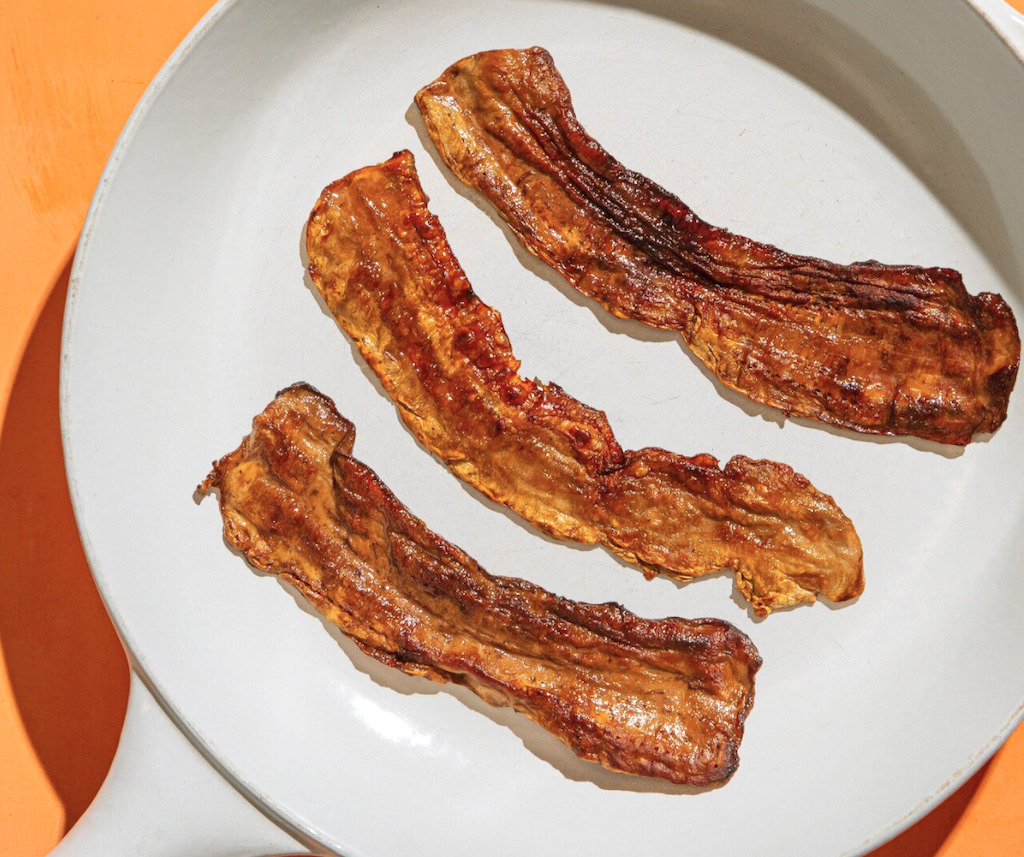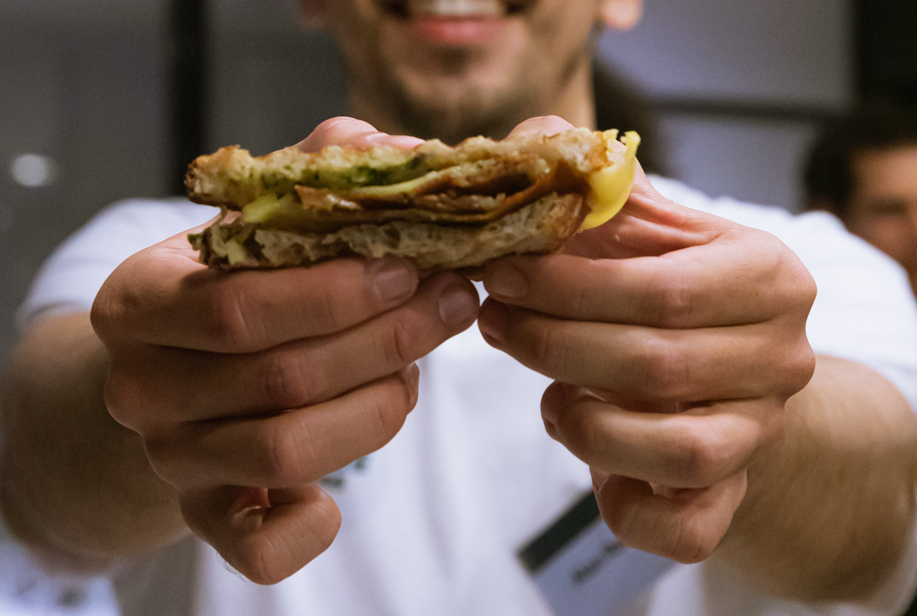3 Mins Read
Libre Foods’ fungi-based bacon product created using fermentation (precision) technology is designed to meet the growing EU demand for pork—currently a $53 billion industry—that offers an alternative to the disadvantages of commercial pig farming. The fungi bacon was unveiled to investors and food-tech community members at Libre Haus in Barcelona last November. We put it to the test.
Founder and CEO Alan Iván Ramos told Green Queen Media: “Libre exists out of impact. Not many people know this, yet pork is the second-largest market category globally behind beef and the sole largest in Europe. Moreover, bacon is often the product that meat-eaters refuse to give up. We’re out to change that, starting with our Libre Bacon.”
Bacon first, steak to follow
With a successful pre-seed round closed last year, which saw Sustainable Food Ventures and Good Seed Ventures coming onboard, Libre Foods has been pressing ahead with creating animal-free proteins. Last year, Green Queen reported that Libre Foods was hoping to develop a whole-cut beef steak using fungi fermentation technology, but the company has pivoted to bacon after developing a deeper understanding of the intricacies at play.
“We realised just how complex a steak really was, so we want to take all the right steps to make sure that we do it well, focusing on all the learnings we obtain from our initial pipeline to bring them all together for our signature product, our Libre Steak,” said Ramos.
Fungi without mycelium
Developing a faithful replica of animal protein requires a focus on texture as well as taste, which is why mycelium, with its rugged fibrosity, has proven to be a suitable building block. The problem, however, is that E.U. approval is still in progress, meaning that current incarnations of Libre meats are fungi-based but mycelium-absent. This has not cooled enthusiasm for the product developments though.

“The regulatory process for new technologies is especially lengthy and difficult in the E.U., yet we’re optimistic that the tide will soon turn toward innovation. We’re a rapidly increasing global population and will need tangible, innovative solutions to feed ourselves in the not-so-far future. Fungi can help do that,” explained Ramos.
Green Queen Media was sent a sample of the Libre animal-free bacon to test. Something exciting is happening: comparably smoky and deep, the cured pork-like notes come through clearly and the use of vegetable fat to recreate a streaky aesthetic adds authenticity. The addition of mycelium, when approved, will drastically alter the mouthfeel and has the potential to create one of the most considered alternatives to animal bacon, which 20 percent of adults in the UK alone have cited as smelling too good to stop eating.
“We’re focused on all the important characteristics that make bacon, bacon. The crispiness, the fattiness and just the right amount of smokiness to meatiness. If bacon is the product that meat-eaters refuse to give up, our Libre Bacon is here to change that,” said Ramos.
Lead image courtesy of Libre Foods.





